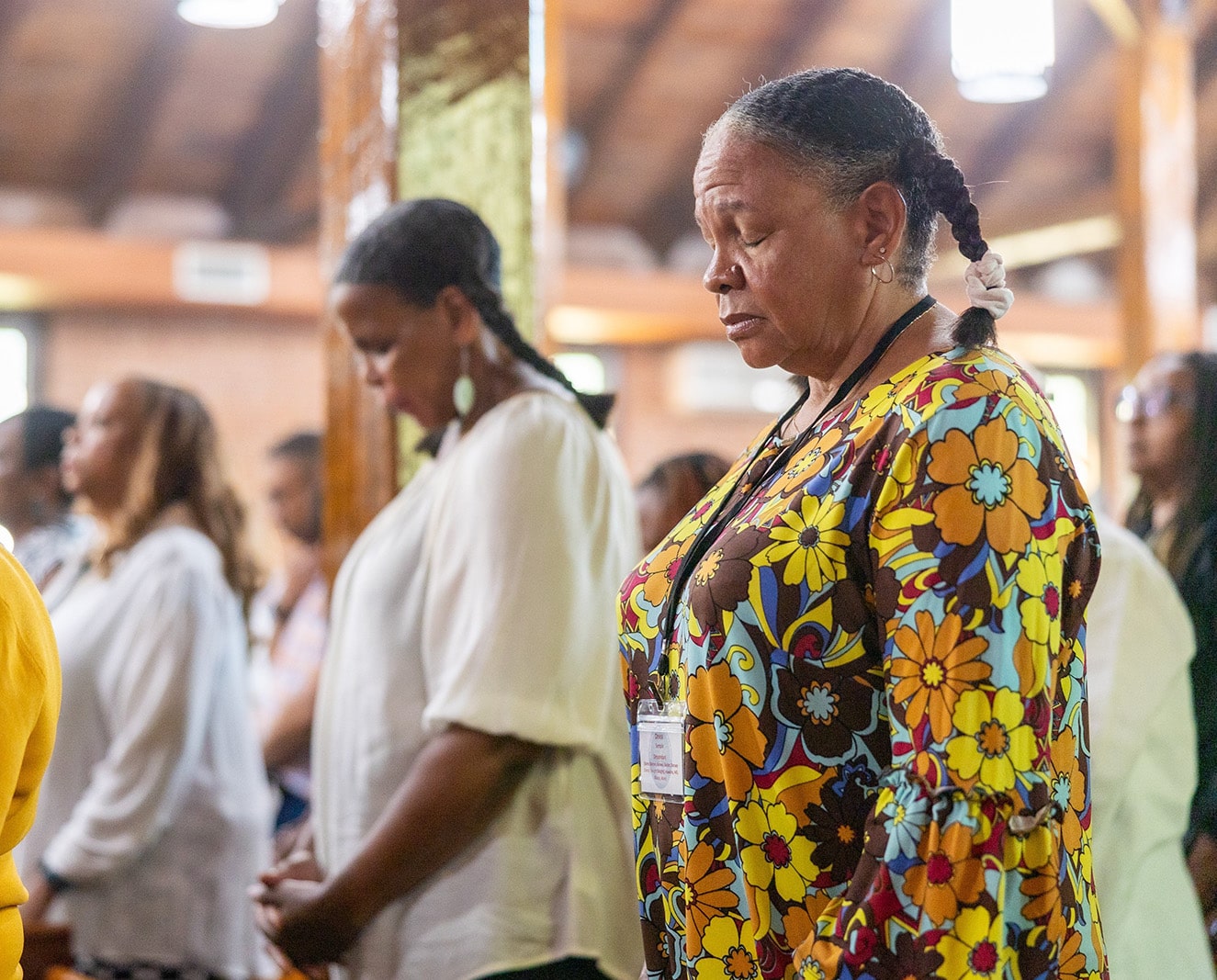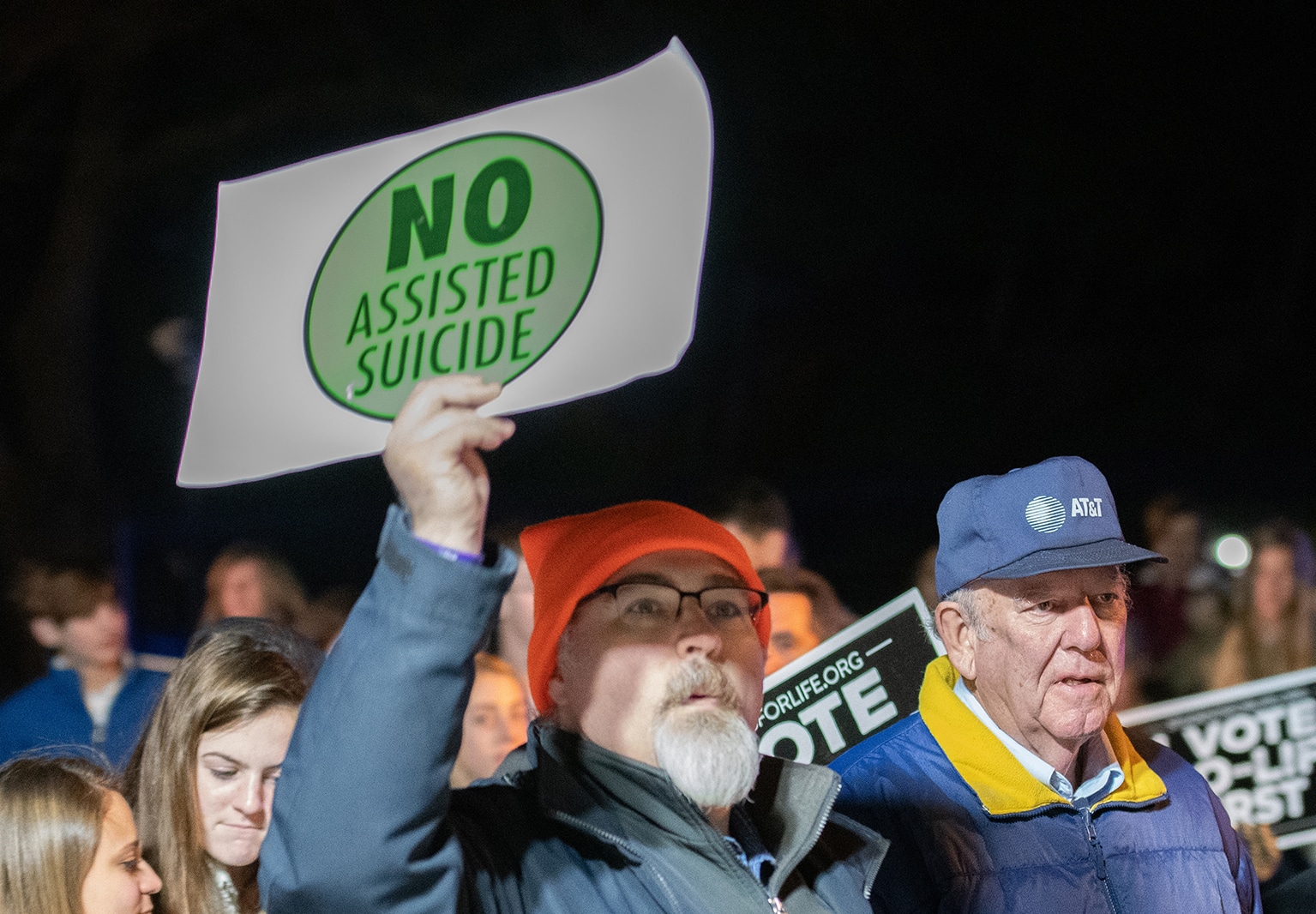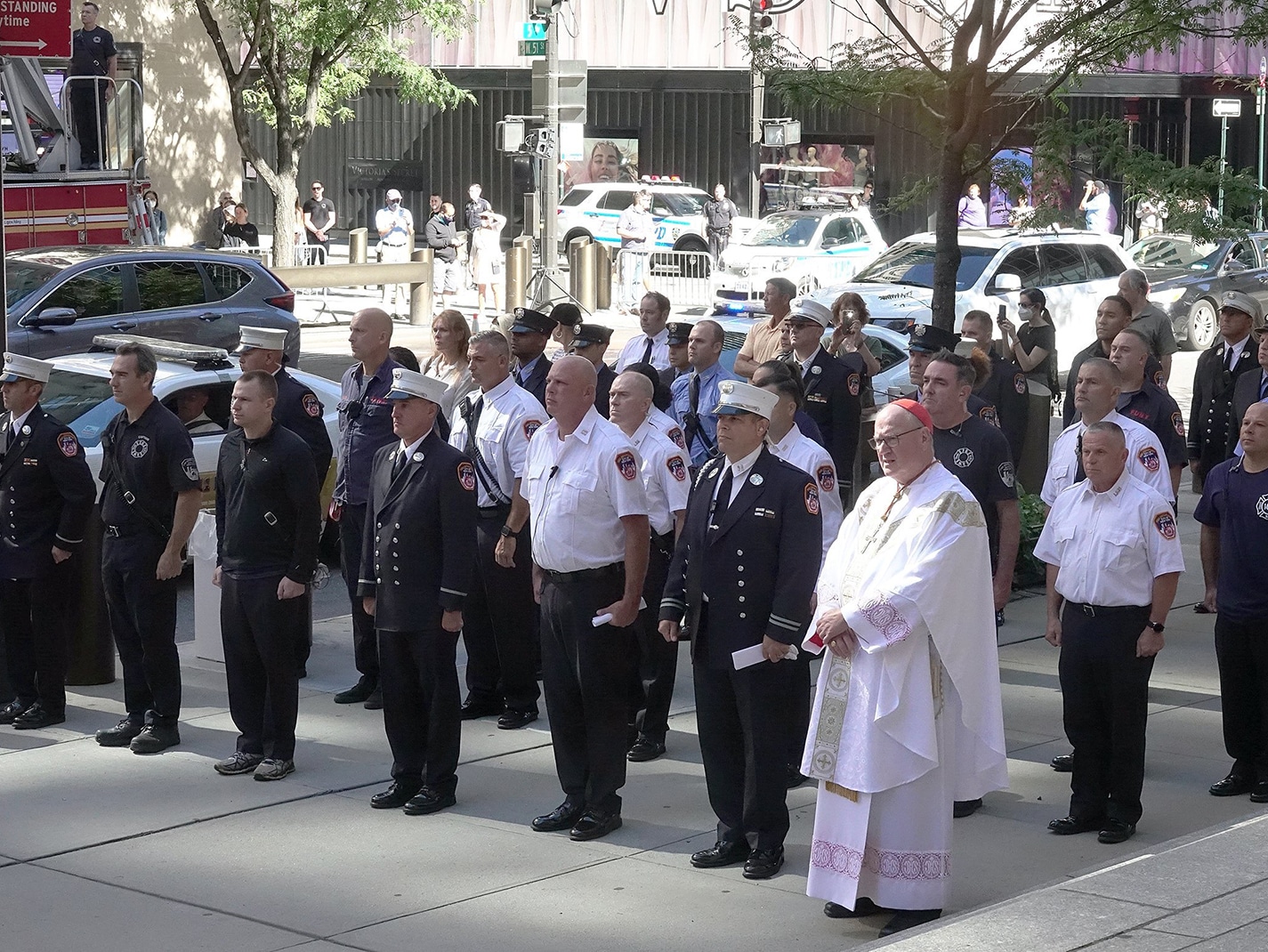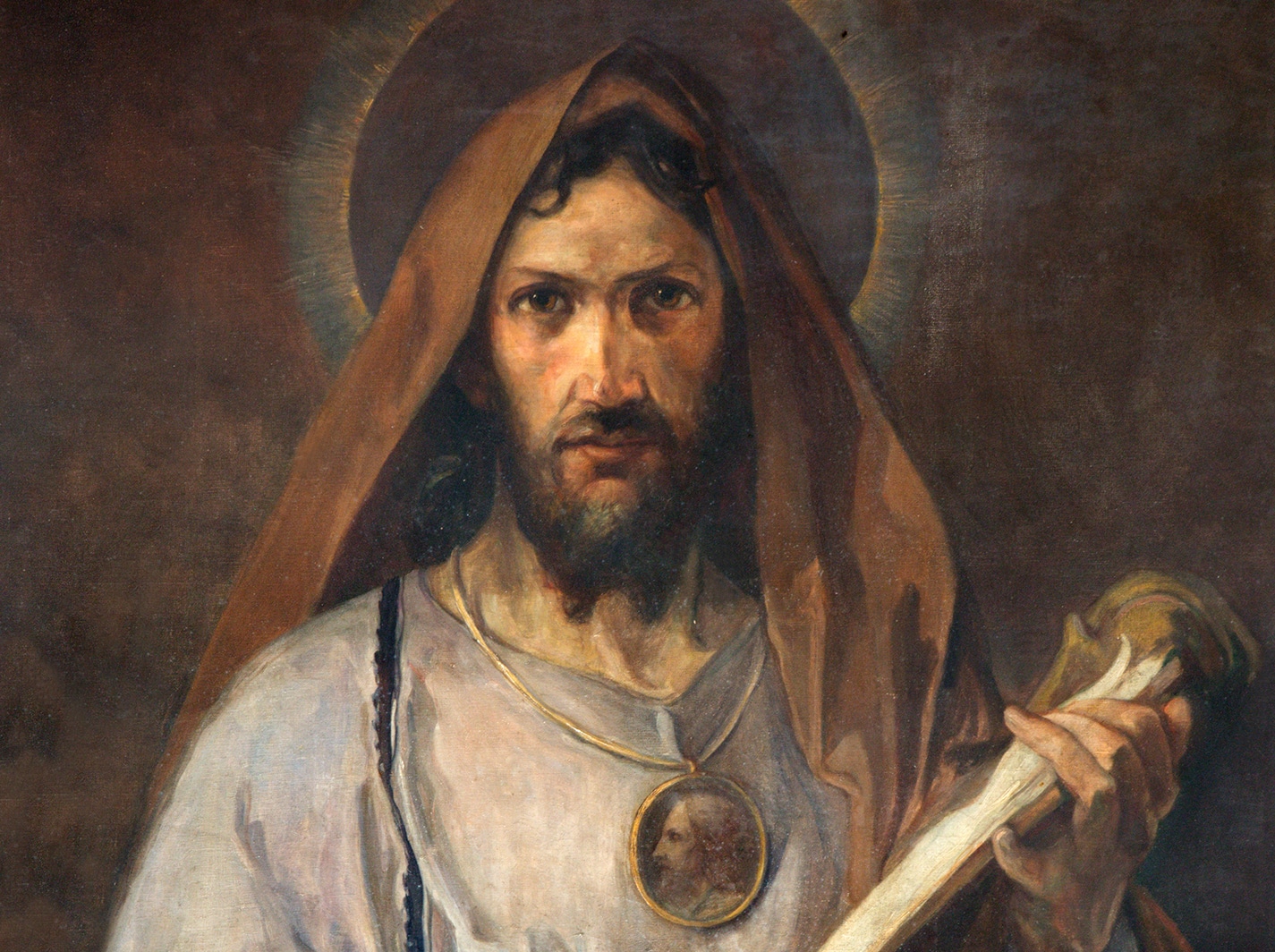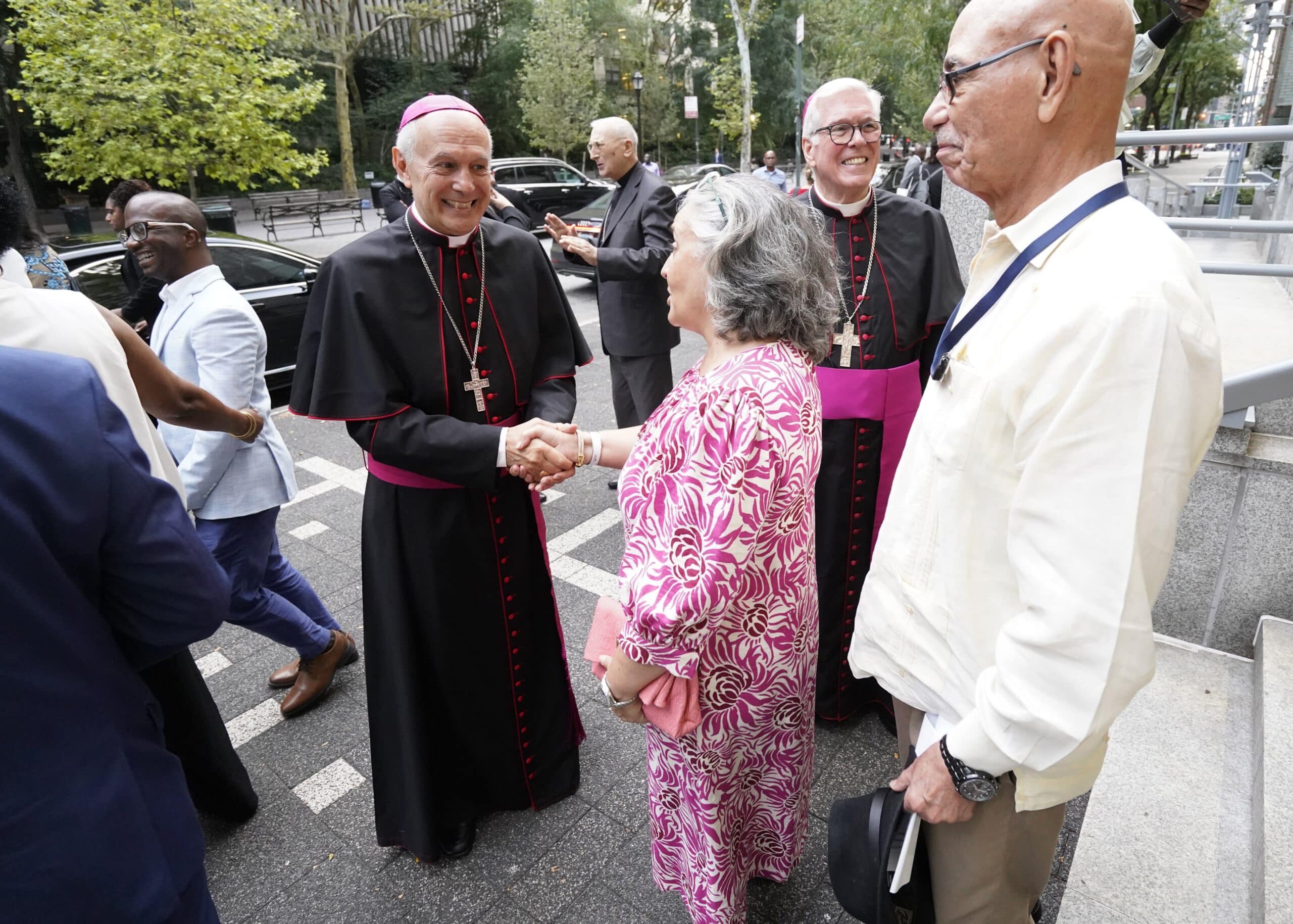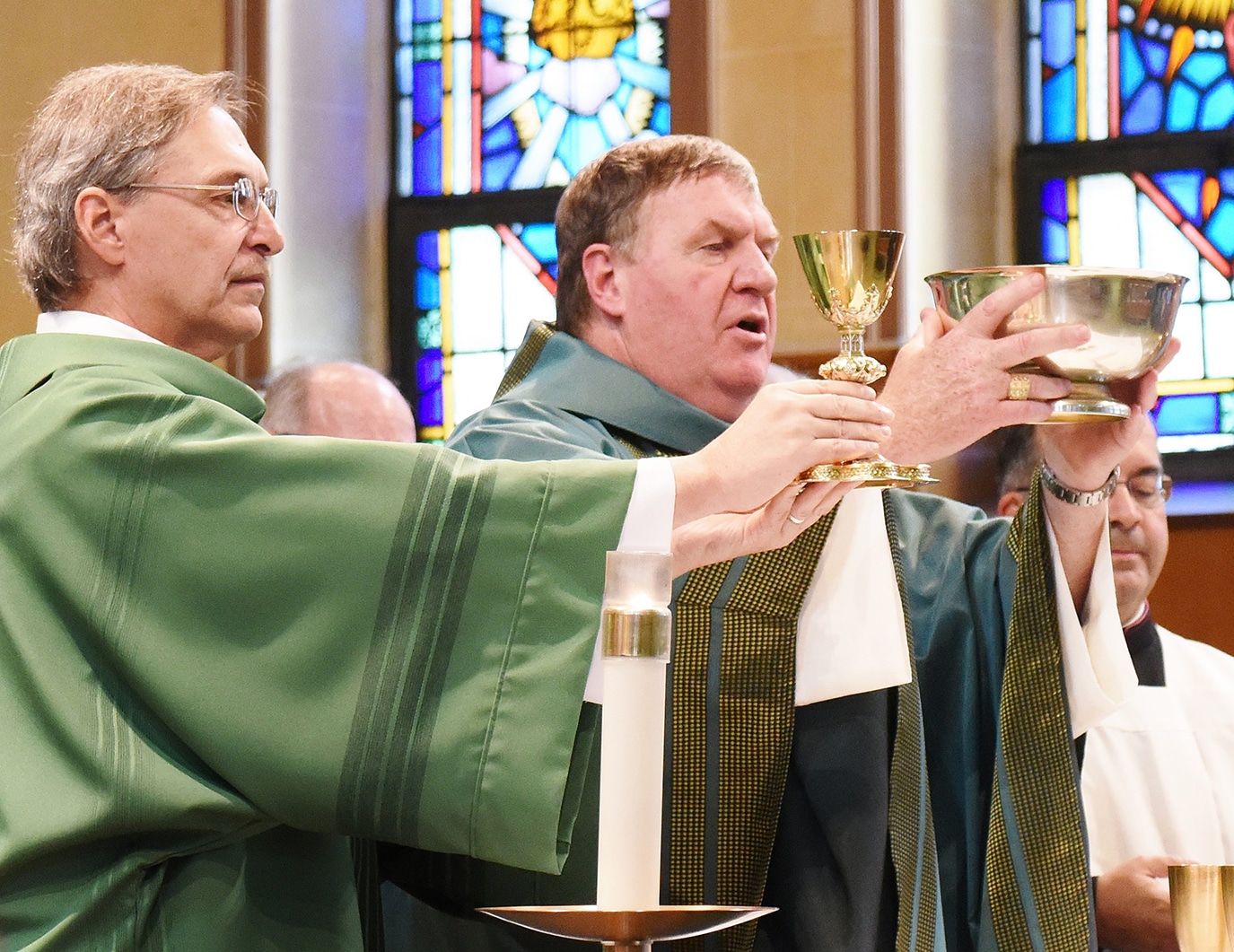ST. INIGOES, Md. (OSV News) — In 1838, Jesuit priests sold 272 enslaved men, women and children, most of whom were forced to leave the religious order’s Maryland farms and were transported by boat to plantation owners in Louisiana.
Proceeds of the sale fortified the future of Georgetown College in Washington, which had been struggling financially, but the enslaved who then toiled in grueling conditions harvesting sugar cane and cotton in Louisiana forever lost connections with family members left behind in Maryland.
But 185 years later, descendants from those enslaved Louisiana ancestors returned to Maryland for a special gathering from Aug. 31 to Sept. 3 to retrace the lives of their forebears, as they visited the sites of several former Jesuit plantations, and reconnected with Maryland descendants of family members who likewise had been separated by the 1838 sale.
Descendants connected to other 19th-century sales of enslaved people by the Jesuits were also invited to the gathering, which received a grant from Georgetown University‘s Reconciliation Fund. The university held a 2017 liturgy to offer a public apology for the 1838 sale and renamed campus buildings that had been named for the two Jesuits who brokered that sale.
Georgetown University also has established the Descendants Truth & Reconciliation Foundation that will support efforts focusing on racial healing and educational advancements.
Henrietta Pike, the chairperson of the Southern Maryland Descendant Gathering steering committee, said in a statement that “as descendants of Jesuit enslaved ancestors, we are building the future our ancestors envisioned. This project will help us pass on our rich legacy of family and faith.”
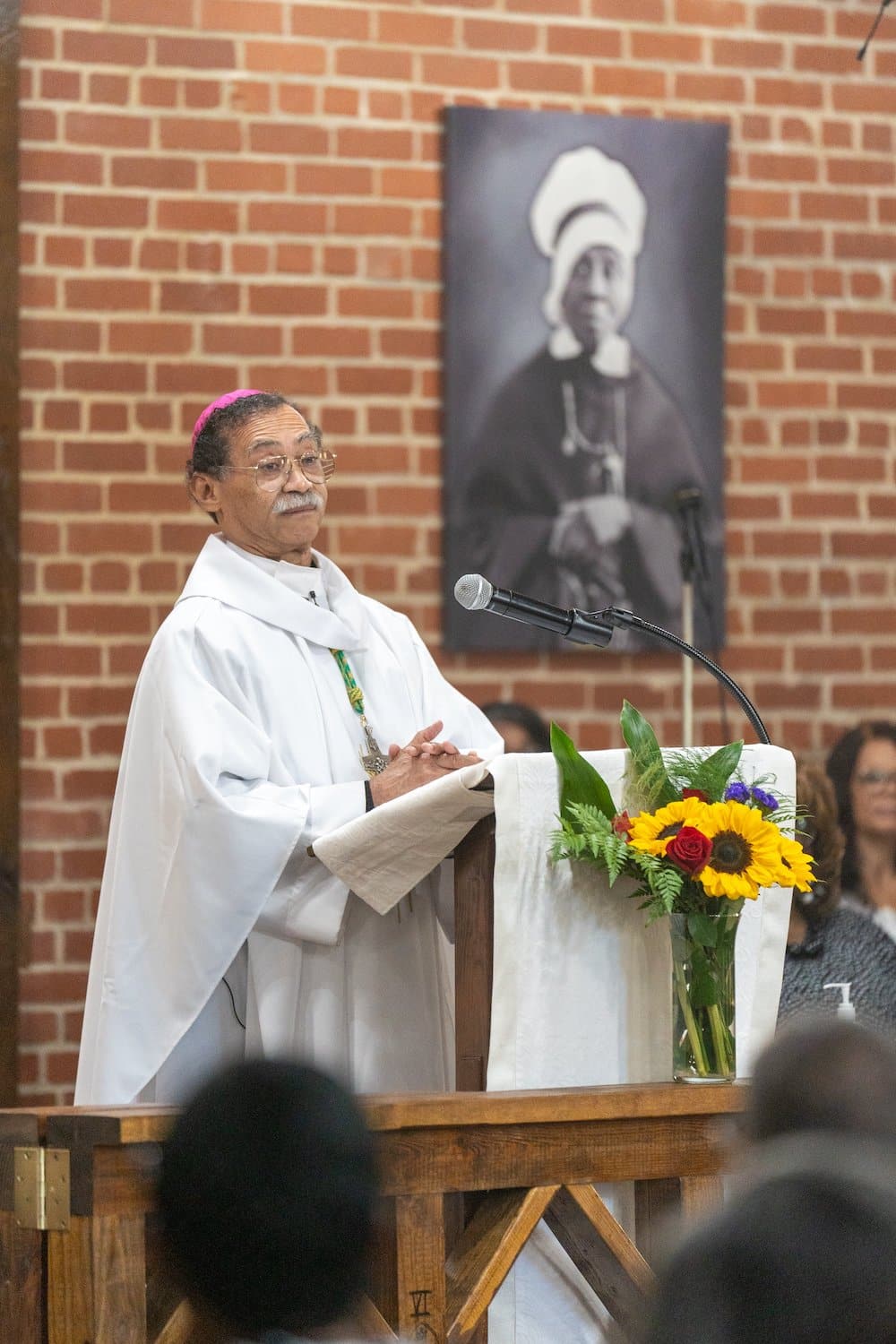
Reconnecting family
In an earlier interview, Pike — a member of Our Lady Help of Christians Parish in Waldorf, Maryland, who works as a nursing supervisor at United Medical Center in Washington — noted that her great-great grandmother Louisa Mahoney was among the 272 men, women and children sold by the Maryland Society of Jesus to Southern plantation owners in 1838, “but she hid in the woods and stayed behind.”
One of the Jesuit priests had warned some of the enslaved people about the sale, so some were able to avoid being transported from Maryland.
Louisa Mahoney, born in 1812 at the Jesuits’ St. Inigoes plantation in Maryland, later married Alex Mason, and they had six children together. After emancipation, Louisa Mason continued faithfully attending church and worked for many years as a domestic at the Jesuits’ residence. When she died in 1909 at age 96, an obituary in a Southern Maryland newspaper praised her as a well-respected member of the community.
Pike said the weekend gathering was all about celebrating the “faith, family and unity” of the descendants. “I wanted people to connect,” she told the Catholic Standard, newspaper of the Archdiocese of Washington, whose territory includes five Maryland counties.
Rochell Prater — the executive director of the GU272 Descendants Association who served as a co-chair for the gathering and who is originally from Maringouin, Louisiana — had lost her voice by the fourth day of the get-together. She and five family members from Louisiana, Ohio and Georgia reconnected with Maryland descendants. She noted that their enslaved ancestor Isaac Hawkins, whose name appeared first on the bill of sale, was able to remain at the Jesuits’ White Marsh plantation in Bowie, Maryland, while their ancestor Bibiana Mahoney was among the enslaved people sold and taken to Louisiana.
“It’s a reunion of the spirits of our ancestors, this gathering of us,” she said, expressing hope that it will become a tradition for the descendants.
Bishop joins gathering
During the gathering, descendants traveled by a bus and in cars to visit former Jesuit plantations in Maryland including St. Thomas Manor located on the grounds of St. Ignatius Church in Chapel Point, Newtown Manor near St. Francis Xavier Church in Newtowne, and St. Inigoes located near St. Peter Claver Church.
They also visited Sacred Heart Church and its cemetery in Bowie, Maryland, where ground penetrating radar has found what may be the site of hundreds of unmarked graves of enslaved people who worked at the Jesuits’ White Marsh plantation in that area during the 1700s and 1800s. In February, Washington Cardinal Wilton D. Gregory led a prayer service at Sacred Heart’s cemetery to bless a memorial marker and pray for the unknown enslaved people who might be buried on those grounds.
The gathering’s closing Mass of remembrance and restoration at St. Peter Claver Church in St. Inigoes Sept. 3 coincided with the feast day Mass for the parish’s patron saint. Washington Auxiliary Bishop Roy E. Campbell Jr., was the main celebrant of the Mass. It was concelebrated by Jesuit Father Gregory Chisholm, an African-American priest from New York City who is the superior of the Jesuits stationed in Baltimore.
Bishop Campbell, who also is president of the National Black Catholic Congress and serves as pastor of St. Joseph Parish in Largo, Maryland, is originally from Charles County in Southern Maryland.
“I might be one of the descendants. We don’t know everything about our ancestry, but what we do know is that we are all children of God,” he said.
The bishop pointed out that St. Peter Claver, the parish’s patron saint, was a Jesuit from Spain who four centuries earlier served enslaved people arriving in what is now the country of Colombia in South America. St. Peter Claver treated people with dignity, “and that is what we are called to do,” he said.
He noted the irony of that saint’s own religious order enslaving people in Maryland, and that Jesuit Father Patrick Healy, the president of Georgetown University from 1874 t0 1882 who is credited with making it a modern university, was born to an enslaved woman in Georgia but was not recognized as being Black as he became the first African American to earn a doctorate and the first to lead a predominantly white university.
“None of us here enslaved anyone, but all of us here are called to honor those who were enslaved, who unjustly lived their lives in toil and torment,” Bishop Campbell said. He added, “We’re all called to honor those who went before us, because if they did not contribute what they did, we would not enjoy what we have. We are called to pass that legacy on to those who come after us.” And he added, “Let us honor them also by the way we live and take care of others.”
Praying at Mass
He praised efforts by the Jesuits and other Catholic and community groups to acknowledge the history and impact of slavery and racism in this country.
“We are on a mission to do what is right. … Together everyone can bring dignity to those who suffered so much,” Bishop Campbell said as the Mass ended.
At the Mass, prayers were offered for the souls of the enslaved GU272 and for the special intentions of their descendants, and also that Catholic leaders will promote healing for people who continue to suffer from the wounds resulting from slavery and racism.
After Mass, people prayed for the sainthood cause of Mother Mary Lange, the foundress of the Oblate Sisters of Providence, the first religious order for women of African descent. St. Peter Claver Church for Black Catholics was established in the early 1900s, and the Oblate Sisters taught children at St. Peter Claver School from 1924 until its last graduating class in 1967. In June Mother Lange was declared “venerable”; she is one of six Black Catholics in the U.S. being considered for sainthood.
Jesuit roots
The Reclamation Project’s Southern Maryland GU272 — Jesuit Enslaved Descendant Gathering over the Labor Day weekend drew hundreds of people who, in addition to touring the plantations and historic churches in that region, also gathered at St. Mary’s College in St. Mary’s City for presentations from scholars and testimonies from fellow descendants. The four days of activities closed with a Mass at St. Peter Claver Church in St. Inigoes. and participants then attended the annual parish festival there.
For Toni Ann Semple, a professional singer from the New York borough of Queens, the weekend was about “connecting the dots for our family. … I think God gave us grace, because he gave us the opportunity to spend time with family and get connected to our family roots.” At the hotel where descendants stayed during the weekend, Semple “sang to my family” in an impromptu performance for fellow descendants.
Like other descendants that weekend, her sister Bernadette Semple wore a badge with the names of enslaved family ancestors connected to that Georgetown sale, including Barnes, Butler, Dorsey and Hawkins. Bernadette Semple, a retired Navy commander who now works in cybersecurity, noted that her maternal grandmother and great-grandmother came from the Southern Maryland area.
Connecting with the fellow descendants showed “that we’re not alone,” she said. “For so long, we thought we were the only Catholics in our family.”
Bernadette Semple noted it was “heartbreaking to hear our ancestors were sold.” She added, “We were all educated by the Sisters of St. Joseph, we all went to Jesuit colleges. The Church has always been supportive of our family, it’s always been in our lives.”
Asked about the challenge of reconciling that history with her family’s long-standing connections to the Catholic Church, Bernadette Semple said, “If I have a role in this, I want to help with the healing.”
She praised the strength of her enslaved ancestors. “They were resilient. They were faithful,” she said, also underscoring the important role African Americans played in the history of Maryland and the United States. “We always knew we belonged here. We were among the first Americans. Now we need to claim that.”
Mark Zimmermann is editor of the Catholic Standard, newspaper of the Archdiocese of Washington.

